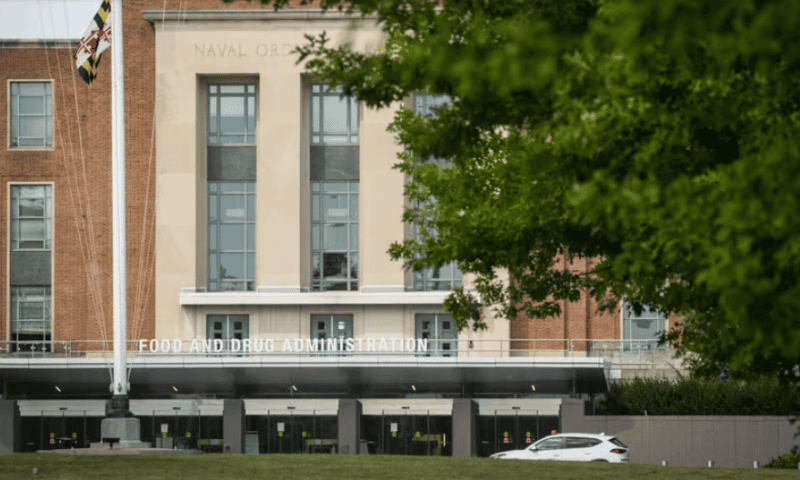Guardant Health’s blood test designed to help screen the population for hidden cases of colorectal cancer may have taken a step closer to FDA approval.
An independent advisory panel convened by the agency voted in favor of a green light for the company’s Shield test, which is currently under review.
The ultimate objective of the test is to offer people at an average level of cancer risk a more convenient, first-line option when it comes to starting the screening process. While having a colonoscopy once every 10 years remains the gold standard for uncovering tumors and precancerous polyps, today’s screening rates still lag behind national goals.
By detecting the presence of altered tumor cell DNA through a standard blood draw, Shield aims to identify patients ages 45 and older who should more quickly undergo a more detailed exam.
According to Guardant, about 50 million people in the U.S. are not up to date with their colorectal cancer screening—more than 40% of the population who should be—either through colonoscopy exams or stool-based tests such as Exact Sciences’ Cologuard.
The FDA called for the discussion due to concerns over false-negative results. Prior to the advisory panel meeting, agency reviewers raised questions regarding Shield’s limitations in detecting the earliest cases of colorectal cancer as well as precancerous adenoma polyps.
In its clinical study of more than 7,800 people, Guardant found the test was able to correctly detect about 83% of cancers; that includes 100% of tumors that had grown to stages 2, 3 and 4.
However, that meant that all the cancers the test missed were in stage 1, where lesions are smaller in size. In that group, the test correctly identified about 55% of cases. That sensitivity percentage dropped down further, to about 13%, when it came to adenomas.
Shield was only slightly better at detecting more aggressive types of adenomas that are more likely to progress to colorectal cancer—including those with high-grade dysplasia, at 22.9%, and those with villous physical features, at 17.9%.
According to the FDA, because the test only offers two results—“negative” or “abnormal” signals detected—an incorrect result could falsely reassure a patient that they are free of either colorectal cancer or an advanced adenoma.
Agency reviewers said Shield’s percentages translate to about 1 in 1,000 people having their colorectal cancer being missed by the blood test, but about 1 in 10 when considering advanced adenomas. Guardant said its false-negative rate was in the same range as other noninvasive screening methods, such as for detecting blood or analyzing DNA in stool samples.
Some panel members also questioned whether the blood test would, in a way, become too popular, and lead patients and providers to choose it over scheduling a more thorough and accurate colonoscopy. That would potentially undermine cancer prevention overall, they said, because while a colonoscopy can not only find an early polyp, it can also remove it before it can grow further.
Guardant repeatedly leaned on the adage that the best screening test is the one that gets done and that studies have shown increases in screening rates after delivering abnormal blood test results.
The company also said its blood test could be more easily repeated versus colonoscopy procedures—for example, if it was part of an average person’s annual checkup—to offer more chances to catch early disease, which develops into more invasive cancers over a period of years. However, Guardant did not examine longitudinal testing in its clinical study.
“If we can use a blood-based test as the gateway drug to getting people interested in having a colonoscopy, that’s a good thing,” said panel member Alexander Borowsky, M.D., director of molecular diagnostics at UC Davis Health, who went on to vote in favor of the test.
At the end of the day, the panel as a whole voted 7-2 that Shield’s potential benefits outweighed its risks. Separately, individual votes on the test’s safety and effectiveness came in at 8-1 and 6-3 in favor, respectively.
Some members said the test’s indication and labeling could be tailored to make it clear to providers and patients that it is not a true alternative to colonoscopy and that a negative result should not steer them away from regularly scheduled exams in accordance with cancer screening guidelines.
As a so-called “first-line” screening test, analysts have pegged Shield’s potential reach as 120 million people; a second-line indication, however—meaning it would only be employed if people refuse a colonoscopy or other screening tests—would cut that number by about half or more.
The FDA typically takes its advisory committees’ recommendations under advisement during final review, but it is not bound by their findings. Shield has previously been available to the public as a lab-developed test; an approval from the FDA would give it a leg up toward securing reimbursement coverage from the Centers for Medicare & Medicaid Services, which would open to the door to screening potentially millions of seniors in the U.S.

